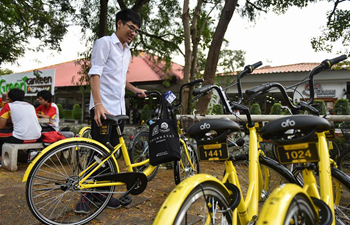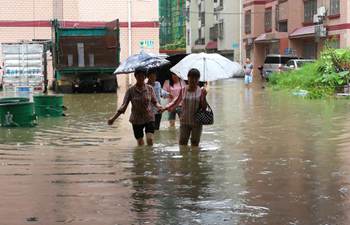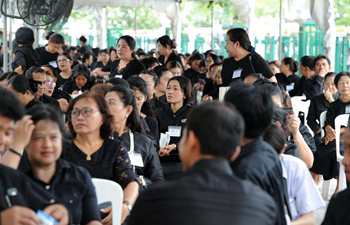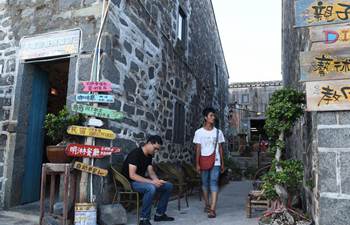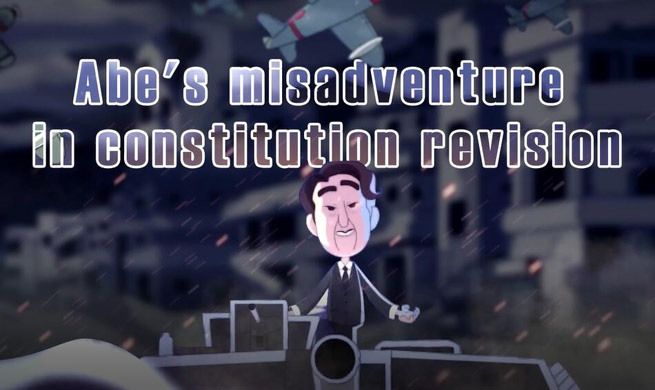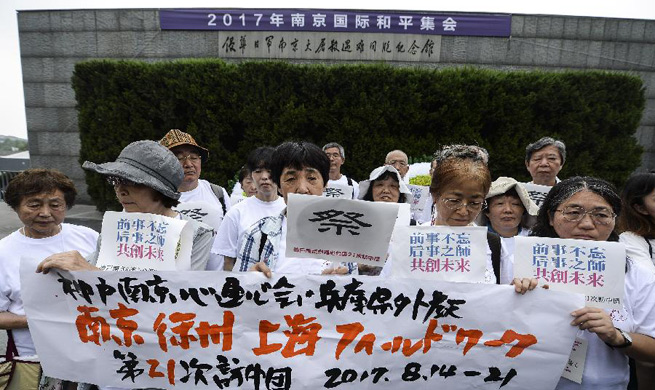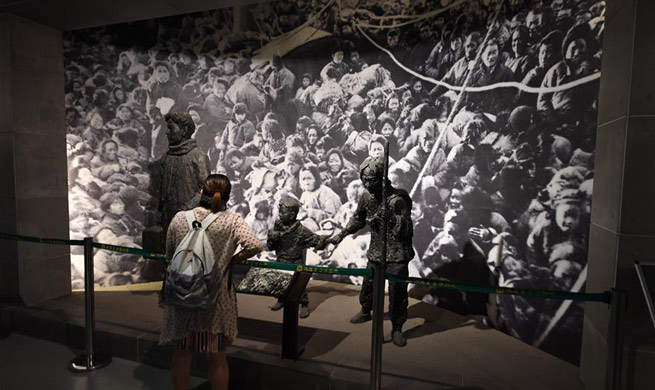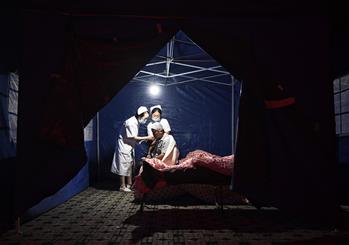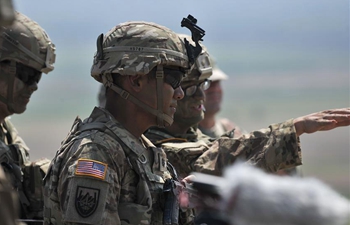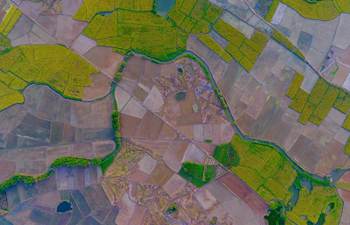GENEVA, Aug. 15 (Xinhua) -- Weeks after the retaking of Iraq's Mosul city from the ISIL, many internally displaced persons (IDPs) are exhibiting signs of stress and anxiety, the UN migrant agency IOM warned on Tuesday.
The UN agency cited its local staff as saying that many of the IDPs seeking help display symptoms of acute stress such as hyper vigilance, anxiety, depression, anger, memory loss, psychosomatic symptoms and a lack of appetite.
Amongst the many children IOM works with, a spokesperson of IOM told a press briefing that those from Mosul tend to display symptoms of developmental regression, exhibited by episodes of bed-wetting, severe anxiety, apathy and quickness to get angry or cry.
"As the psychological toll of what many had endured over the last three years kicks in, children in particular have been scarred by the violence of life under ISIL and they will need long-term psychological support," the spokesperson said.
IOM said that it has been offering support to IDPs since November 2016, virtually since the start of the Mosul crisis, by providing integrated psychosocial services to 24,399 internally displaced Iraqis.
IOM said that its outreach ranges from individual counselling to structured play. Emotional support comes in the form of sporting activities, as well as from guided group discussions and specialized consultations.
With support from other institutes, IOM's Mental Health and Psychosocial Support programme now has seven centers catering to IDPs from Mosul and its surrounding areas, it added.
During nearly three years of operations, IOM said it has reached over 50,000 beneficiaries in Iraq and provided roughly 150,000 different psychosocial support activities.
"We concentrate on containment and preventative measures to help the IDPs establish a sense of safety and normalcy," the spokesperson said, adding that the goal is to empower individuals to see themselves as survivors rather than victims, facilitating acceptance of the new conditions, and to activate resilient strategies to cope with past, present and future challenges.




